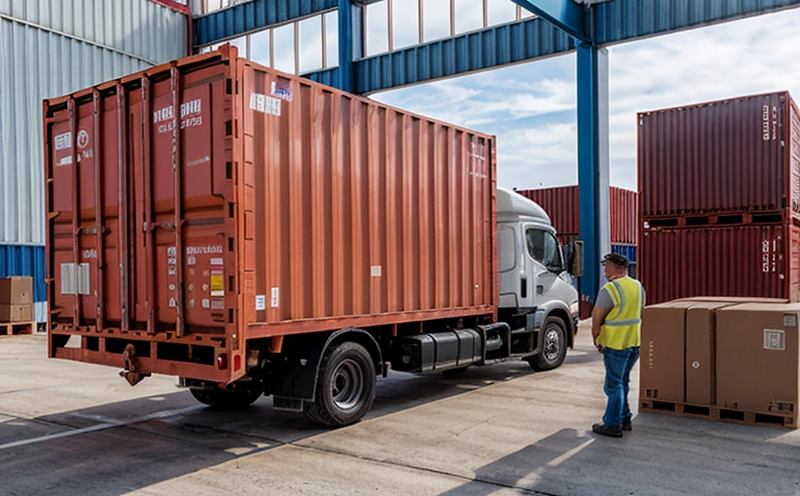Pre-shipment inspection
Pre-shipment inspection (PSI) is a critical process that ensures exported goods meet the required specifications and quality standards before they leave the manufacturer's premises. This service plays an essential role in maintaining product integrity, meeting international trade requirements, and protecting both buyers and sellers from potential risks associated with substandard products.
PSI involves a series of inspections conducted by qualified third-party laboratories to verify that goods conform to agreed-upon specifications, including but not limited to design, quality, performance, safety, and environmental compliance. The primary objective is to minimize the risk of non-compliance during international trade transactions. This process adheres to internationally recognized standards such as ISO 9001 for quality management systems, ISO/IEC 17025 for laboratory accreditation, and various sector-specific regulations.
The PSI service begins with a detailed review of the buyer’s technical specifications, including product descriptions, drawings, test reports, and any other relevant documentation. This information is crucial in tailoring the inspection process to meet specific requirements. Following this, samples are collected from different parts of the production line or batch to ensure comprehensive coverage.
During the inspection, a range of tests may be conducted using advanced instrumentation such as X-ray fluorescence spectrometers (XRF), gas chromatography-mass spectrometry (GC-MS), and high-performance liquid chromatography (HPLC). These tests are designed to evaluate various aspects of product quality, including chemical composition, physical properties, mechanical strength, electrical conductivity, and environmental impact. The results of these analyses are compared against the agreed-upon specifications to determine conformity.
Once the inspection is complete, a comprehensive report detailing all findings is provided to both parties involved in the transaction. This report serves as a formal document confirming that the goods meet the specified quality standards. In cases where non-conformities are identified, the manufacturer may be required to rectify these issues before the shipment can proceed. Failure to address these concerns could result in delays or even rejection of the entire consignment.
The PSI service also helps build trust between trading partners by providing an independent verification of product quality. This transparency fosters better relationships and encourages adherence to contractual obligations. Furthermore, it reduces the likelihood of disputes arising over product quality during post-shipment inspections or upon arrival at the destination.
In summary, pre-shipment inspection is a vital component of international trade that ensures product quality meets specified standards before being shipped abroad. By adhering to rigorous testing protocols and leveraging state-of-the-art analytical techniques, this service provides peace of mind for all stakeholders involved in the transaction.
Why It Matters
The importance of pre-shipment inspection cannot be overstated, especially given today’s increasingly globalized market. Ensuring product quality before shipment not only protects buyers from receiving defective goods but also helps manufacturers maintain their reputation and customer satisfaction levels. Here are some key reasons why PSI matters:
Reduces risks associated with non-compliance to international standards.
Ensures conformity to agreed-upon specifications, enhancing buyer confidence.
Avoids costly rework or scrapping of products due to post-shipment discovery of defects.
Promotes fair trade practices by eliminating opportunities for fraud or misrepresentation.
Fosters strong business relationships through transparent communication about product quality.
Meets regulatory requirements imposed by importing countries, ensuring smooth customs clearance processes.
Supports sustainable development goals by reducing waste and improving resource efficiency.
In conclusion, pre-shipment inspection is more than just a routine procedure; it represents a commitment to excellence in product quality that benefits everyone involved in international trade.
Industry Applications
Consumer electronics: Ensuring compliance with electromagnetic compatibility (EMC) standards and safety regulations.
Pharmaceuticals: Verifying drug content uniformity, stability, and adherence to Good Manufacturing Practices (GMP).
Fashion textiles: Checking fabric composition, colorfastness, and environmental impact of materials used in clothing production.
Automotive components: Confirming mechanical properties, finish quality, and emission control measures for engine parts.
Construction materials: Evaluating strength, durability, and fire resistance characteristics of concrete, steel, and insulation products.
Food & beverage industry: Guaranteeing hygiene standards, nutritional content accuracy, and allergen management practices.
The application examples above highlight how PSI can be tailored to various industries depending on the unique challenges faced by each sector. By addressing these issues proactively through thorough inspections prior to shipment, businesses can ensure they meet regulatory expectations while maintaining high standards of quality.
Use Cases and Application Examples
The use cases for pre-shipment inspection span across numerous industries, reflecting the diverse nature of products being traded internationally. Below are some specific examples:
A global electronics manufacturer uses PSI to verify that all assembled components meet their stringent quality control criteria before export.
An international pharmaceutical company relies on PSI services to ensure batch consistency and compliance with GMP guidelines for its life-saving medications.
Construction companies leverage PSI to validate the strength and environmental impact of new building materials being exported to countries with strict import regulations.
A fashion retailer employs PSI to check fabric quality and dye fastness in order to maintain consistent product performance across different batches.
In each case, the goal is clear: to guarantee that only products meeting high standards leave the factory floor. This not only protects the manufacturer’s reputation but also ensures compliance with international trade laws and regulations.





